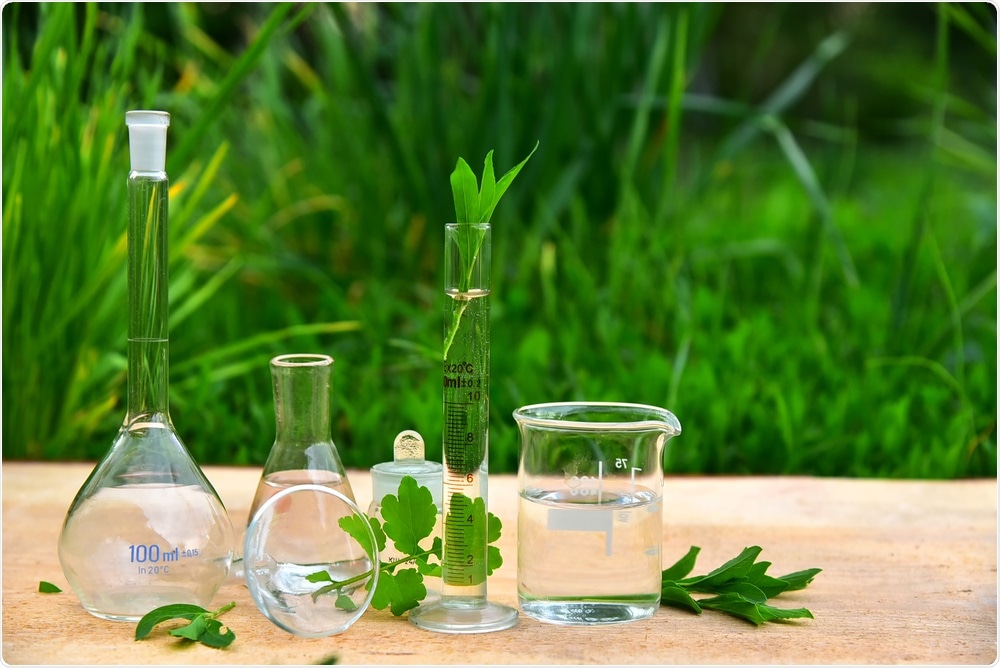To date, the rapid outbreak of the severe acute respiratory syndrome coronavirus 2 (SARS-CoV-2) has claimed more than 5.3 million lives worldwide. This outbreak has resulted in a pandemic that is popularly known as the coronavirus disease 2019 (COVID-19) pandemic. Several COVID-19 vaccines have received emergency use authorization (EUA) from global regulatory boards, which was quickly followed by the commencement of vaccination programs in many countries.
SARS-CoV-2 infection occurs when the receptor-binding domain (RBD) of the glycosylated spike protein binds to the human angiotensin-converting enzyme 2 (hACE2) receptor. Post binding, the S2 domain of the spike protein initiates membrane fusion, thus allowing the virus genome to enter the host cell.
Generally, respiratory viruses like SARS-CoV-2 infect the host predominantly through the nasopharyngeal cavity. Virions are transmitted among individuals through respiratory droplets, aerosols, or indirectly from contaminated surfaces.
 Study: Iota-Carrageenan Inhibits Replication of SARS-CoV-2 and the Respective Variants of Concern Alpha, Beta, Gamma, and Delta. Image Credit: Kryuchka Yaroslav / Shutterstock.com
Study: Iota-Carrageenan Inhibits Replication of SARS-CoV-2 and the Respective Variants of Concern Alpha, Beta, Gamma, and Delta. Image Credit: Kryuchka Yaroslav / Shutterstock.com
Background
Since the beginning of the pandemic, SARS-CoV-2 has evolved due to mutations that have led to the emergence of several different variants. These variants have been classified as variants of interest (VOI) and variants of concern (VOC).
SARS-CoV-2 VOCs have been characterized as more virulent and transmissible as compared to the original strain and can evade the immune response induced via natural infection or COVID-19 vaccination.
As all available SARS-CoV-2 vaccines have been designed based on the original strain, scientists are skeptical of their efficacy against the SARS-CoV-2 variants. Some of the SARS-CoV-2 VOCs include Alpha (B.1.1.7), Beta (B.1.351), Gamma (P.1), Delta (B.1.617.2), and Omicron (B.1.1.529) variants that have significantly increased the number of COVID-19 cases worldwide.
To date, there is no antiviral treatment available, apart from monoclonal antibodies, for high-risk patients. Scientists have indicated the urgent need to develop novel COVID-19 therapeutics that would be effective against a broad spectrum of SARS-CoV-2 strains.
Carrageenan - A natural compound
Previous studies have shown the efficacy of natural substances against a variety of viruses. In the current scenario, scientists have explored the effectiveness of natural substances against SARS-CoV-2.
Among these natural compounds, carrageenan is a popular compound that is used in the food, cosmetic, and pharmaceutical industries. Carrageenan is a high molecular weight sulfated polymer that is obtained from red seaweed and has been considered to be safe by the United States Food and Drug Administration (FDA). The commercially used forms of carrageenan are iota, kappa, and lambda, which vary from each other in their degree of sulfation, solubility, and gelling properties.
Antiviral properties of iota-carrageenan
Previous studies have demonstrated the antiviral activity of iota-carrageenan against a variety of respiratory viruses. A recent study has shown that this compound is capable of inhibiting SARS-CoV-2 replication in various cell lines and human airway epithelial cultures.
Importantly, the use of iota-carrageenan as a nasal spray was found to be effective and safe in placebo-controlled clinical trials. This study included more than 600 children and adults suffering from a respiratory viral infection, wherein the iota-carrageenan treatment showed a decrease in the viral load, as well as a reduction in the duration and severity of COVID-19 symptoms.
Another study reported that an iota-carrageenan-containing nasal spray possessed prophylactic efficacy in preventing SARS-CoV-2 infection among healthcare workers who cared for COVID-19 patients. This study reported a relative risk reduction of 79.8%.
Scientists have recently reported the efficacy of carrageenan against both the SARS-CoV-2 original strain as well as the Alpha, Beta, Gamma, and Delta VOCs with comparable IC50 values. This study has been published in the International Journal of Molecular Sciences. Among all forms of carrageenan, scientists reported that iota is most effective against the aforementioned strains.
Efficacy of iota-carrageenan against SARS-CoV-2 and its VOCs
The current study revealed that the IC50 values varied based on the form of infection and cell lines used. The values ranged between 1.4–5 µg/mL iota-carrageenan in a SARS-CoV-2 spike pseudotyped lentivirus particles (SSPL) system to 2.1–10.3 µg/mL in A549-ACE2/TMPRSS2 cells, and 0.04–0.15 µg/mL in Calu-3 human lung cells infected with the SARS-CoV-2 variants. This study strongly indicated that iota-carrageenan exhibited the best result among all other forms of carrageenan, including a 10-fold higher efficacy than lambda and kappa.
As natural compounds have better toxicological profiles, they have lesser side effects and a faster admission process as compared to chemically designed compounds. Another advantage of these compounds is that they exhibit a broader antiviral spectrum as compared to small molecule inhibitors of viral factors or highly specific monoclonal antibodies.
A previous study reported the synergistic antiviral activity of a combination of carrageenan with lectin Griffithsin against SARS-CoV-2 pseudoviruses. Previous studies have also shown that carrageenan possesses antitumor, immunomodulatory, and coagulative activities.
In the current study, scientists reveal that iota-carrageenan can non-specifically envelop viruses and prevent interaction between the virus and cellular surface. The negatively charged iota-carrageenan molecules attract and trap the virus and sterically prevent infection of adjacent epithelial cells. The trapped viruses are finally eliminated by mucociliary clearance.
Journal reference:
- Froba, M., Grobe, M., Setz, C., et al. (2021) Iota-Carrageenan Inhibits Replication of SARS-CoV-2 and the Respective Variants of Concern Alpha, Beta, Gamma, and Delta. International Journal of Molecular Sciences 22(24). doi:10.3390/ijms222413202.